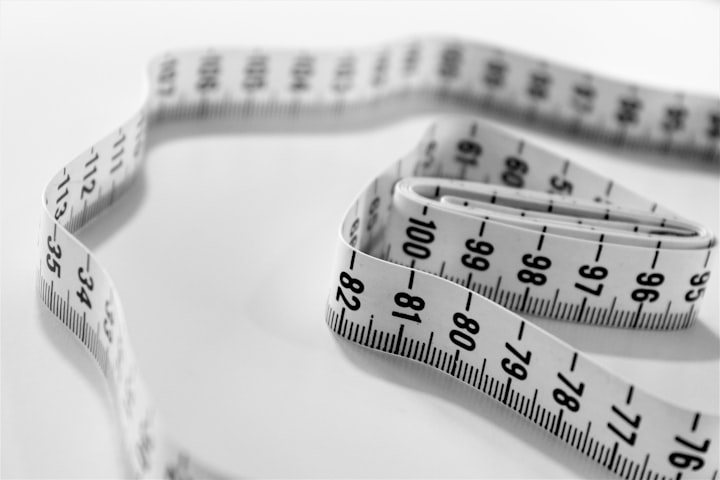Dieting for weight loss: a PTs' controversial take
And 3 tips to help you actually stay on track

Throughout my journey as a PT, I've worked with a variety of individuals - each with their own unique goals and pre-dispositions. However, the one protruding question that always seems to get asked when it comes to losing weight is the following:
What diet do I need to get on to lose weight?
Now here comes the controversy: 9 out of 10 times a diet in itself is the wrong approach. Let me tell you why.
When starting out, the first (and unfortunate) solutions people look into when not having had that proper guidance usually boil down to either:
- Finding a random, unqualified meal plan online to then half-follow through for a month
- Jumping on unregulated fat burning pill stacks that triple-fold unwanted side-effects
- Deciding the best way to go is literally starvation
And then they wonder why it doesn't work!
The thing to keep in mind here when it comes to weight loss is that people tend to overcomplicate it by miles. When it really is fairly simple: Consume less calories than you burn.
No amount of paleo, ketogenic, vegan diets are going to change the fundamental path which has been and always will be there since dawn of time. How do you think people in the older ages did without Keto pills? Just eat less and burn more.
The problem however, is that it still isn't that easy. A lot of people, even personal trainers tend to make losing weight into this almost magical journey, a way bigger deal than the situation actually calls for.
And that's great as it motivates and gets them more sessions, but the reality and truth is that, while this is great for kickstarting change, its almost always bound to show problems as time goes on. Think of it this way: depending on your current situation, by starting a diet you're essentially replacing the prior source of nutrition for a different one.
This seems productive at the start, but as time goes on can have drastic effects on your relationship with food. By isolating all of the "bad" snacks, drinks etc out of your life, you end up creating a feedback-loop that tells you anything other than Kale Salad isn't the way to be. Which absolutely isn't true.
But even if it was, would you really be content eating so and so for the rest of your life? Why torture yourself?
How you should actually structure your plan
The best way to go forward, quickly summarised, is to take what you currently eat and group it into a physical list. Every drink, soda and snacks to be included. You then make the adult and mature choice to cut out 1/10th of what's on there.
It might not seem like much at the start, but that one extra Snickers bar you have on your break could be the difference between a combined 1000 Calories every week! All of that will add up, believe me.
What you would then want to look into is making your lifestyle a little bit more active, but first let me explain. 'Active', doesn't have to mean running marathons every day; something as simple as going for a walk at the end of the evening or getting involved in fun activities where you'll be on your feet, makes a massive difference.
Keep this up, and you'll be noticing improvements in body composition within the first two weeks, up to eight and you'll be seeing noticeable losses!
So there you have it, the general summary of weight loss. To further help you (and as promised) here are the three tips that I would have killed to know.
Tip #1: Cut out the excess sugar
Believe it or not, the only thing that contributes to the addition of fat is sugar. Your body will look to use it almost immediately after consumption, with all that's left over going into the 'storage' department.
Not to mention of the many issues with hyper-excitability viewed in both children and adults, the energy slump after & so many more downsides. You don't want to cut sugar out fully, but be mindful of what you consume.
Tip #2: Use the 70% rule
What is the 70% rule? Essentially:
When eating, eat 70% of the meal. Take a break and talk for a while drink some water and enjoy the moment for a bit. You'll find that the majority of the time the food will settle in your stomach and you won't be hungry anymore.
This is also an important factor when it comes to mental resilience, after a while you'll realise how little that 30% of left food was actually serving your needs rather than your taste palate.
Tip #3: Drink more water
The last but nowhere near the least, is the importance of drinking water. Physiologically, a lot of unanswered hunger is just masquerading as thirst, so you break down the barrier while keeping yourself hydrated.
Make sure you drink plenty throughout the day, consider ice cold in the summer (there have been studies showing it actually burns extra small amount of calories) preferably right before a meal.
Your kidneys will thank you and you'll be keeping hunger in check.
All in all, this has been today's article. Hope this clears up any misconceptions, if you have any questions (I am a fully qualified personal trainer) then head on over to my instagram @coachrafail and I'll answer your questions there. Thank you for reading and good luck :)






Comments
There are no comments for this story
Be the first to respond and start the conversation.